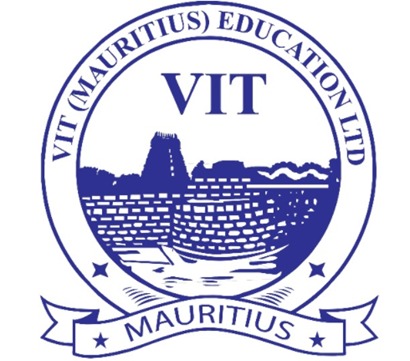Computer Engineering with Specialization in Artificial Intelligence and Machine Learning
B.ENG. (Hons) in Computer Engineering with specialization in Artificial Intelligence and Machine Learning
VISION STATEMENT OF THE SCHOOL OF COMPUTER SCIENCE AND ENGINEERING
To be a world-renowned centre of education, research and service in computing and allied domains.
MISSION STATEMENT OF THE SCHOOL OF COMPUTER SCIENCE AND ENGINEERING
• To offer computing education programs with the goal that the students become technically competent and develop lifelong learning skill.
• To undertake path-breaking research that creates new computing technologies and solutions for industry and society at large.
• To foster vibrant outreach programs for industry, research organizations, academia and society.
PROGRAMME EDUCATIONAL OBJECTIVES (PEOs)
1. Graduates will be engineering practitioners and leaders, who would help solve industry’s technological problems.
2. Graduates will be engineering professionals, innovators or entrepreneurs engaged in technology development, technology deployment, or engineering system implementation in industry.
3. Graduates will function in their profession with social awareness and responsibility.
4. Graduates will interact with their peers in other disciplines in industry and society and contribute to the economic growth of the country.
5. Graduates will be successful in pursuing higher studies in engineering or management.
6. Graduates will pursue career paths in teaching or research
PROGRAMME OUTCOMES (POs)
PO_01: Having an ability to apply mathematics and science in engineering applications.
PO_02: Having a clear understanding of the subject related concepts and of contemporary issues and apply them to identify, formulate and analyse complex engineering problems.
PO_03: Having an ability to design a component or a product applying all the relevant standards and with realistic constraints.
PO_04: Having an ability to design and conduct experiments, as well as to analyse and interpret data.
PO_05: Having an ability to use techniques, skills, resources and modern engineering tools necessary for engineering practice.
PO_06: Having problem solving ability- solving social issues and engineering problems.
PO_07: Having adaptive thinking and adaptability.
PO_08: Having a clear understanding of professional and ethical responsibility.
PO_09: Having cross cultural competency exhibited by working in teams.
PO_10: Having a good working knowledge of communicating in English.
PO_11: Having a good cognitive load management [discriminate and filter the available data] skills.
PO_12: Having interest in lifelong learning
PROGRAMME SPECIFIC OUTCOMES (PSOs)
1. Design and develop intelligent automated systems applying mathematical, analytical, programming and operational skills to solve real world problems.
2. Apply machine learning techniques, software tools to conduct experiments, interpret data and to solve complex problems.
3. Implement engineering solutions for the benefit of society by the use of Artificial Intelligence and Machine Learning.
CREDIT STRUCTURE
Category-wise Credit distribution
Knowledge area | Credits |
| Mathematics | 64 |
| Natural Sciences | 58 |
| Engineering Sciences | 269 |
| Design and Synthesis | 84 |
| Complementary studies | 94 |
| Total | 569 |
|
Semester |
Code |
Course Title |
L |
T |
P |
C |
|
Semester 1 |
BCSE101E |
Computer Programming: Python |
1 |
0 |
4 |
10 |
|
BEEE102L |
Basic Electrical and Electronics Engineering |
3 |
0 |
0 |
10 |
|
|
BEEE102P |
Basic Electrical and Electronics Engineering Lab |
0 |
0 |
2 |
4 |
|
|
BMAT101L |
Calculus |
3 |
0 |
0 |
10 |
|
|
BMAT101P |
Calculus Lab |
0 |
0 |
2 |
4 |
|
|
BSTS101P |
Quantitative Skills Practice I |
0 |
0 |
3 |
7 |
|
|
BPHY101L |
Engineering Physics |
3 |
0 |
0 |
10 |
|
|
BPHY101P |
Engineering Physics Lab |
0 |
0 |
2 |
4 |
|
|
Semester 1: Total |
59 |
|||||
|
Semester |
Code |
Course Title |
L |
T |
P |
C |
|
Semester 2 |
BSTS102P |
Quantitative Skills Practice II |
0 |
0 |
3 |
7 |
|
BCHY102L |
Environmental Sciences |
3 |
0 |
0 |
10 |
|
|
BMAT102L |
Differential Equations and Transforms |
3 |
1 |
0 |
12 |
|
|
BHUM101L |
Ethics and Values |
2 |
0 |
0 |
7 |
|
|
BCSE102L |
Structured and Object-Oriented Programming |
2 |
0 |
0 |
7 |
|
|
BCSE102P |
Structured and Object-Oriented Programming Lab |
0 |
0 |
4 |
7 |
|
|
BENG101L |
Technical English Communication |
2 |
0 |
0 |
7 |
|
|
BENG101P |
Technical English Communication Lab |
0 |
0 |
2 |
4 |
|
|
BECE102L |
Digital Systems Design |
3 |
0 |
0 |
10 |
|
|
BECE102P |
Digital Systems Design Lab |
0 |
0 |
2 |
4 |
|
|
Semester 2: Total |
75 |
|||||
|
Semester |
Code |
Course Title |
L |
T |
P |
C |
|
Semester 3 |
BFLE200L |
Foreign Language |
2 |
0 |
0 |
7 |
|
BCSE103E |
Computer Programming: Java |
1 |
0 |
4 |
10 |
|
|
BENG102P |
Technical report writing |
0 |
0 |
2 |
4 |
|
|
BSTS201P |
Qualitative Skills Practice I |
0 |
0 |
3 |
7 |
|
|
BMAT201L |
Complex variables and linear algebra |
3 |
1 |
0 |
12 |
|
|
BCSE202L |
Data Structures and Algorithms |
3 |
0 |
0 |
10 |
|
|
BCSE202P |
Data Structures and Algorithms Lab |
0 |
0 |
2 |
4 |
|
|
BCSE205L |
Computer Architecture and Organization |
3 |
0 |
0 |
10 |
|
|
BECE204L |
Microprocessors and Microcontrollers |
3 |
0 |
0 |
10 |
|
|
BECE204P |
Microprocessors and Microcontrollers Lab |
0 |
0 |
2 |
4 |
|
|
Semester 3: Total |
78 |
|||||
|
Semester |
Code |
Course Title |
L |
T |
P |
C |
|
Semester 4 |
BCHY101L |
Engineering Chemistry |
3 |
0 |
0 |
10 |
|
BCHY101P |
Engineering Chemistry Lab |
0 |
0 |
2 |
4 |
|
|
BCSE303L |
Operating Systems |
3 |
0 |
0 |
10 |
|
|
BCSE303P |
Operating Systems Lab |
0 |
0 |
2 |
4 |
|
|
BMAT202L |
Probability and Statistics |
3 |
0 |
0 |
10 |
|
|
BMAT202P |
Probability and Statistics lab |
0 |
0 |
2 |
4 |
|
|
BCSE302L |
Database Systems |
3 |
0 |
0 |
10 |
|
|
BCSE302P |
Database Systems Lab |
0 |
0 |
2 |
4 |
|
|
BCSE307L |
Compiler Design |
3 |
0 |
0 |
10 |
|
|
BCSE307P |
Compiler Design Lab |
0 |
0 |
2 |
4 |
|
|
BSTS202P |
Qualitative Skills Practice II |
0 |
0 |
3 |
7 |
|
|
BCSE306L |
Artificial Intelligence |
3 |
0 |
0 |
10 |
|
|
Semester 4: Total |
87 |
|||||
|
Semester |
Code |
Course Title |
L |
T |
P |
C |
|
Semester 5 |
BMAT205L |
Discrete Mathematics and Graph theory |
3 |
1 |
0 |
12 |
|
BCSE308L |
Computer Networks |
3 |
0 |
0 |
10 |
|
|
BCSE308P |
Computer Networks Lab |
0 |
0 |
2 |
4 |
|
|
BCSE301L |
Software Engineering |
3 |
0 |
0 |
10 |
|
|
BCSE301P |
Software Engineering Lab |
0 |
0 |
2 |
4 |
|
|
BCSE204L |
Design and Analysis of Algorithms |
3 |
0 |
0 |
10 |
|
|
BCSE204P |
Design and Analysis of Algorithms Lab |
0 |
0 |
2 |
4 |
|
|
BCSE203E |
Web programming |
3 |
0 |
0 |
10 |
|
| Discipline Elective 1 |
10 |
|||||
| Open elective 1 |
10 |
|||||
|
Semester 5: Total |
84 |
|||||
|
Semester |
Code |
Course Title |
L |
T |
P |
C |
|
Semester 6 |
BHSM200L |
HSM elective |
10 |
|||
|
BCSE304L |
Theory of Computation |
3 |
0 |
0 |
10 |
|
|
BCSE309L |
Cryptography and Network Security |
3 |
0 |
0 |
10 |
|
|
BCSE309P |
Cryptography and Network Security Lab |
0 |
0 |
2 |
4 |
|
|
BCSE305L |
Embedded Systems |
3 |
0 |
0 |
10 |
|
|
BCSE209L |
Machine Learning |
3 |
0 |
0 |
10 |
|
|
BCSE209P |
Machine Learning Lab |
0 |
0 |
2 |
4 |
|
| Discipline Elective 2 |
10 |
|||||
| Open Elective 2 |
10 |
|||||
| Discipline Elective 3 |
10 |
|||||
|
Semester 6: Total |
88 |
|||||
|
Semester |
Code |
Course Title |
L |
T |
P |
C |
|
Semester 7 |
BCSE497J |
Project – I |
7 |
|||
|
BEXC100L |
ExtraCurricular Activities |
7 |
||||
| Discipline Elective 4 |
10 |
|||||
| Discipline Elective 5 |
10 |
|||||
| Open Elective 3 |
10 |
|||||
| Open Elective 4 |
10 |
|||||
|
Semester 7: Total |
54 |
|||||
|
Semester |
Code |
Course Title |
L |
T |
P |
C |
|
Semester 8 |
BCSE499J |
Capstone Project / Internship |
40 |
|||
|
Semester 8: Total |
40 |
|||||
|
Semester 4/6 |
BCSE399J |
Summer Industrial Internship |
4 |
|||
|
Total Credits |
569 |
|||||
Author



